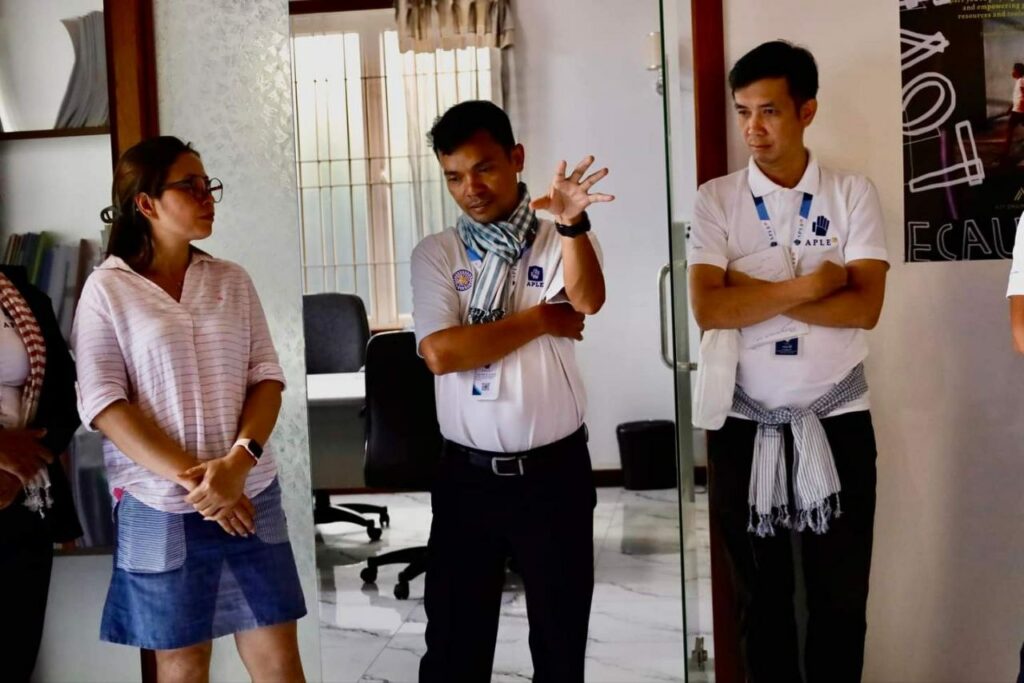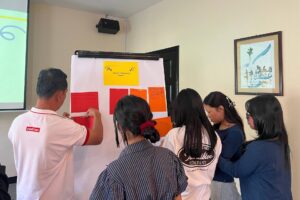Child Suvivor Support
Child Victim-Survivor Support and Assistance

Summary
Our Victim Support and Assistance program is designed to provide comprehensive social, recovery and legal protection services to children who have experienced sexual exploitation and abuse by offering crisis intervention, legal aid, and long-term psycho-social support, ensuring that child survivors receive the necessary support to heal and rebuild their lives.


Immediate and Long-term Support
Our victim support and assistance team conducts safety and needs assessments at the rescue and referral stages. This involves identifying the specific requirements of each child, based on their unique experiences and gender, and making appropriate referrals to our extensive network of partner organizations for long-term psycho-social services.
Legal Assistance
APLE’s legal team provides free legal advice and representation for child survivors and their families, ensuring their rights are protected throughout the judicial process.
Case Management
APLE emphasizes the importance of robust case management and seamless coordination among various service providers to ensure comprehensive support for child victims of sexual exploitation and abuse. Through a collaborative approach involving governmental and non-governmental organizations, we are committed to delivering holistic care tailored to the unique needs of each child.
Network Collaboration
Our social program works hand-in-hand with multiple partner NGOs and relevant government entities to cater to the specific physical, emotional, and social needs of rescued children. Through formalized partnerships, APLE enhances its case management capabilities by integrating social and legal services. This collaboration ensures that child victims receive tailored social services and legal support in a child-centered and child-friendly manner.
Challenges
Supporting and protecting child survivors throughout the recovery and justice process presents numerous challenges. These obstacles span logistical, social, and institutional aspects that can hinder the delivery of effective and comprehensive care.
Limited Resources and Services: One major challenge is the limited availability of resources and specialized services needed to support child survivors. This includes a shortage of professionals trained in trauma-informed care and child-friendly practices, as well as insufficient funding for long-term support and rehabilitation programs.
Social and Cultural Barriers: Cultural norms and social stigmas can significantly impede the support process. Many survivors and their families face societal pressure that discourages them from seeking help or reporting abuse. In some cases, there is a deep-rooted fear of retribution or shame, which can lead to underreporting and lack of engagement with support services.
Complex Legal Process: Navigating the legal system can be daunting for child survivors and their families. The complexity of legal procedures, coupled with the lack of child-friendly judicial environments, can cause additional stress and trauma. Ensuring that court proceedings are conducted in a manner that protects the mental and emotional well-being of the child is a persistent challenge.
Coordination Among Service Providers: Effective support requires seamless coordination among various service providers, including social workers, legal advisors, healthcare professionals, and law enforcement agencies. However, achieving such coordination can be challenging due to differing protocols, communication barriers, and the fragmentation of services.
260+
child survivors and their parents received psychosocial and legal support in the past year
60+
child survivors represented through 55 court proceedings last year
Child beneficiaries reported their satisfaction with the court proceeding, indicating the effectiveness of our support services.
Recent Activities

Third Survivor-led Training Session Builds Confidence and Safety Coping Skills
APLE Cambodia successfully conducted its latest empowerment program under the theme “Enhancing Children’s Empowerment to Participate and Report with Confidence

2025 ASEAN ICT Forum on Child Online Protection: Empowering Children and Strengthening ASEAN’s Commitment
APLE representatives joined the 2025 ASEAN ICT Forum on Child Online Protection under the theme ‘Empowering Children and Strengthening ASEAN’s

